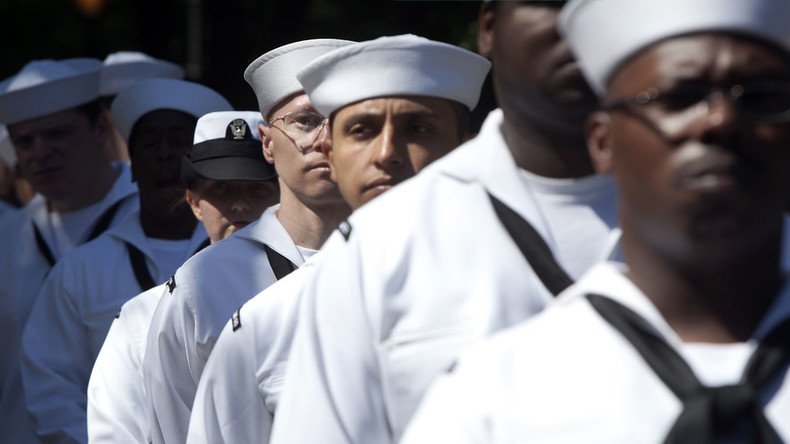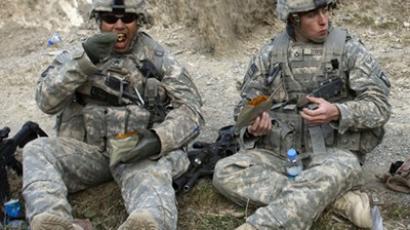The US Navy has reduced body fat standards to allow thousands of overweight sailors who repeatedly fail physical fitness tests to stay. Obesity is stealing too many talented sailors from duty, the service has been forced to admit.
Some 2,400 sailors have already been allowed to keep their jobs, thanks to softened demands, according to AP citing Navy spokesman, Lt. Cmdr. Nate Christensen.
The maximum body fat allowed by the Navy has been raised from 22 to 26 percent for males aged 17-39, and from 33 to 36 percent for female personnel of the same ages.
Previously, three consecutive failures to pass physical tests meant dismissal. But now with the more lenient body fat standard a sailor can only be dismissed after two failed tests.
Recent years have been marked by more than a twofold growth of personnel being kicked out of the US Navy over failure to meet physical standards, from 694 in 2011 to 1,536 in 2014.
Exactly 10 percent of the Navy’s personnel, or about 34,000 sailors, have failed the physical standards at least once since 2011, most of them due to excessive body fat, Christensen said.
The traditional “tape test” uses measurements of the neck and waist to calculate personal body fat percentage. This method is not accepted by all experts. The US Air Force uses the Body Mass Index method, which correlates individual weight and height.
According to a Pentagon study in 2014, roughly two thirds of Americans would not be fit for military service for health reasons, either by being overweight or not completing their high school education.
Navy Secretary Ray Mabus said the new standards reflect the current realities and shouldn’t be viewed as downgrading standards. Modern people are bigger than their predecessors, without being necessarily fat, he said.
“We were kicking more people out of the Navy for failing that, than for drugs,” Mabus said.
It has also been reported that the Navy is considering introducing larger uniform sizes for the first time in two decades.
The changes in the Navy’s attitude towards the physical condition of its personnel opens an argument about what qualities are more important for a serviceman in modern high-tech warfare. Is it muscle or brain? Obviously, cyber-warriors do not need to meet strict body fat requirements. The same goes for assault and reconnaissance drone operators and other technical personnel on remote duty far from the battlefield.
The changes are also necessary due to more and more female personnel enlisting in the military. Revision of the standards looks to be inevitable.
“It's absurd the percentage of high school teenagers who are considered to be too fat to join the military,” said AP James Joyner, a former Army officer currently teaching at the Marine Corps University.
Joyner argued the current standards are outdated and irrelevant.



